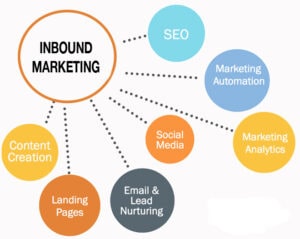Tips to Successfully Organize Your Small Business
Are you the owner of a small business? If so, then you know just how important it is to stay organised. After all, a small business is like a well-oiled machine – when all of the parts are working together efficiently, the business runs smoothly. But when even one part is out of place, it can throw everything off. That’s why it’s crucial to keep your small business organised.
How to Start and Run a Small Business?
Opening a thriving business is an exciting and challenging undertaking. While there is no one-size-fits-all formula for success, there are some basic steps you can take to get your business off the ground. Here’s a guide on how to start and run a small business:
- Define your business idea and write a business plan. Before you can start making your business a reality, you need to have a clear idea of what you want to achieve and how you’re going to get there. A well-written business plan will help you articulate your vision and map out the steps you need to take to turn your idea into a successful reality.
- Register your business with the government and obtain the necessary licences and permits. Once you have your business plan in place, it’s time to make it official by registering your business with the government.
What is a Small Business?
A small business is a privately owned company, partnership, or sole proprietorship that has fewer employees and less revenue than a large corporation. The U.S. Small Business Administration defines a small company as a business employing fewer than 500 workers.
Small businesses are the backbone of the American economy, accounting for more than half of all private sector jobs in the United States. In addition to providing employment, small businesses contribute to local economies by paying taxes and supporting community programs.
There are many benefits to owning a small business, including the ability to be your boss and the potential to earn a higher income than you would working for someone else. However, starting and running a successful small business is not easy. Have the utmost energy and enthusiasm, as it will take a large amount of time and energy.
How to Start a Small Business?
Starting your own small business is an exciting and rewarding endeavour, but it can also be a bit overwhelming. There are a lot of things to think about and do, but with careful planning and execution, you can set your business up for success. Here are a few ideas for you to follow:
- Define your business. What product or service will you be offering? Who is your target market? What makes your business unique? Answering these questions will help you focus your efforts and make sure you are appealing to the right people.
- Create a business plan. By evaluating your plan, this document will set forth your goals, approaches, and means of achieving them. It will also be useful when applying for loans or investors down the road.
- Get the necessary licences and permits from your state and local government. Check if you need to submit an Environmental Impact Assessment Report for the property.
The steps above are a good starting point for making sure your business is ready to begin building or renovation.
How to Organise Your Small Business?
Most small business owners wear many hats, which can lead to feeling scattered and disorganised. But there are some simple steps you can take to get control of your business and your life.
Start by taking an inventory of what needs to be done and when. Create a master list of everything that needs to be accomplished, both in your business and personal life. Then you ought to break it down into manageable sections.
Next, create a schedule and stick to it. Dedicate certain days or times of day to specific tasks. For example, you might want to answer emails first thing in the morning, work on new projects in the afternoon, and handle administrative tasks later in the day. Permit time to reflect on your schedule so that you can take breaks.
Finally, get organised physically. This means creating a space where you can work efficiently and comfortably.
Types of Small Businesses
My three recommended types of small businesses are sole proprietorships, partnerships, and corporations. Sole proprietorships are owned and operated by one person, while partnerships are owned and operated by two or more people. Corporations are larger businesses that are publicly traded on the stock exchange.
Each type of small business has its strengths and weaknesses. Sole proprietorships and partnerships are typically easier to start up and have lower overhead costs than corporations. However, these businesses may be more difficult to finance and scale up than corporations.
Start a Business with a Purpose
Starting a business with a purpose is the best way to ensure success. This type of small business is focused on making a difference in the world, rather than simply making a profit. While profits are important, they should not be the only goal of your business. Instead, focus on creating a positive impact and you will be more likely to find success.
There are many benefits to starting a business with a purpose. First, you will be more passionate about your work. This passion will help you to persevere when times are tough and continue working towards your goals. Additionally, customers and clients will be more likely to support your business if they believe in its mission. Finally, employees will be more engaged and motivated if they feel like they are part of something larger than themselves.
Start a Business for the Money
There are a lot of types of small companies to choose from. Some people start businesses for the money, while others do it for the love of the product or service they’re offering. There’s no right or wrong answer when it comes to why you should start a business, but if your primary motivation is to make money, there are certain types of businesses that are more likely to succeed than others.
One type of business that can be quite profitable is a franchise. Franchises have a proven business model that you can follow, and they often come with built-in name recognition and a customer base. Another option is to start a niche business catering to a specific group of people. This can be anything from pet care to home improvement services.
Create a Unique Business Idea
In today’s business world, it’s more important than ever to have a unique business idea. A unique business idea is what sets your small business apart from the rest. It’s what makes you stand out from the crowd and attract attention from potential customers.
To create a unique business idea, start by thinking about what you’re passionate about. What are you good at? What do you enjoy doing? Once you’ve identified your passions, brainstorm ways to turn those passions into a successful business.
Think outside the box and be creative. There are so many choices for establishing a separate company. If you’re able to picture it, you can make it happen! Just remember to do your research and make sure your business is feasible before taking the plunge.
Start a Private Business
Starting a private business is a great way to get involved in the vibrant sector of the economy. There are many advantages to starting a private business:
- First, you have complete control over your business. You can make all the decisions about what products or services to offer, how to price them, and how to market them.
- Second, as the owner of your own business, you get to keep all of the profits that your business generates.
- Third, starting a private business allows you to be your boss and set your hours.
- Finally, private businesses often have a more personal feel than large corporations, and customers may be more loyal to businesses that they feel a connection to.
Start a Business Which Able to Change the World
Small businesses are the engine driving our innovative economy. They foster job creation, spur innovation, and promote growth. Not all small businesses are created equal, however. A tiny minority of companies have the potential to radically make decisions that improve people’s lives.
If you’re looking to start a small business that can make a big impact, here are a few things to keep in mind.
First, consider what problem you’re trying to solve. What unmet need does your product or service address? How will your company make a difference in the lives of its customers?
Next, think about scale. How can you grow your business to reach as many people as possible? What kind of infrastructure do you need to put in place to support that growth?
Finally, don’t forget about profitability. Your business needs to be sustainable in the long run.
Tips for Running a Small Business
As the owner of a small business, you are burdened with many different tasks. You are the CEO, CFO, and HR manager all rolled into one. While this can be daunting, it is also empowering. You have the freedom to grow your business in the direction you want it to go. To keep a business running well, there are several tips to follow:
Keep Your Business Mylar-proof
Mylar balloons are a common decoration at birthday parties, weddings, and other celebrations. But if you’re running a small business, you need to be aware of the dangers they pose.
If a Mylar balloon escapes into the atmosphere, it can cause power outages and communication disruptions. Even worse, if one of these balloons bursts, the sharp shards can injure people and damage property.
To avoid these problems, make sure your business is mylar-proof. Keep an eye on helium tanks and Mylar balloons, and make sure they’re properly secured. If you see a balloon floating away, take action immediately to retrieve it. By taking these precautions, you can keep your business safe and running smoothly.
Make Your Business More Sustainable
You should be constantly looking for opportunities to boost your bottom line as a small business owner. One way to do that is to make your business more sustainable.
Sustainability is important for several reasons. First, it’s good for the environment. Second, it can help you save money on operating costs. Third, it makes your business more attractive to customers and employees who are interested in supporting companies that are environmentally responsible.
There are several ways to make your small business more sustainable. You can start by doing a sustainability audit to identify areas where you can improve. You can also implement some simple changes, such as switching to energy-efficient lighting or using recycled materials.
Making your small business more sustainable is a smart move that will benefit both your bottom line and the planet.
Use the Internet to Grow Your Business
In today’s business world, the internet is a vital tool for growing your small business. Here are a few tips on how you can use the internet to help grow your business:
- Use social media platforms to connect with potential customers and build relationships.
- Use search engine optimization techniques to ensure that potential customers can easily find your website.
- Use online advertising platforms to reach a wider audience with your marketing message.
By following these tips, you can leverage the power of the internet to help grow your small business.
Make Your Business More Visible
Visibility is key for small businesses. Make sure your business can be seen by potential customers. Here are some tips on how to make your business more visible:
- Use bright and eye-catching colours in your signage and marketing materials.
- Place your signage in strategic locations where potential customers are likely to see it.
- Make use of online directories and listings to ensure potential customers can find your business easily online.
- Consider using billboards or other forms of outdoor advertising to increase your visibility even further.
- Get involved in the local community and participate in events and activities that will help raise awareness of your business.
FAQs
How can I find information on how to organise my small business?
There are a few ways you can find information on how to organise your small business:
You can look online for tips and advice from other small business owners.
You can attend workshops or seminars offered by business organisations.
You can consult with a business coach or consultant.
What are some common organisational mistakes that small business owners make?
There are a few common organisational mistakes that small business owners make:
Not having a clear vision or goal for the business. Without a clear vision, it’s difficult to make decisions that will move the business forward in the right direction.
Not delegating tasks and responsibilities. As the owner of a business, you have to delegate as much as you are able. You need to delegate tasks to employees or contractors so that you can focus on the most important aspects of running the business.
How can I make my business run more smoothly and efficiently?
There are a few things you can do to make your business run more smoothly and efficiently:
Streamline your processes and procedures.
Automate as much as possible.
Delegate tasks and responsibilities to competent employees.
Stay organised and keep track of deadlines.
You will effectively communicate with all the people in your team.
How can you overcome common organisational challenges?
There is no one-size-fits-all answer to this question, as the best way to overcome common organisational challenges will vary depending on the specific challenges faced and the organisation itself.
However, concepts to overcome common organisational obstacles include developing a clear and sharp mission statement, establishing distinct goals and objectives, constructive communication between all staff levels, and creating a conducive and welcoming work environment that encourages productivity.
How do you organise a disorganised business?
There are a few ways to organise a disorganised business. One way is to create a system of organisation that works for you and your team. This may include creating folders for each project, setting up a daily or weekly schedule, and assigning tasks to specific team members.
Another way to organise a disorganised business is to hire a professional organiser. This person can help you create an organisational system that will work for your business and help you keep it organised.
Final Thoughts
In conclusion, these tips should help you get your small business organised and on the path to success. Creating a budget, setting up a filing system, and delegating tasks are essential to keeping your business running smoothly. With a little effort and some planning, you can ensure that your small business is organised and ready to take on whatever challenges come your way.








I was looking through some of your articles on this internet site and I think this site is really instructive!
Keep posting.Blog money